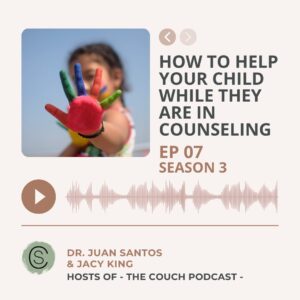Is Your Child Having A Difficult Time Making Friends?
The school year has started and around this time parents are left thinking about how their child is doing at school. Social isolation, loniliness, and social disconnection are important items for parents to be aware of. According to the cdc social isolation and loneliness is a widespread issue impacting the life and health of kids and adults in U.S. You are reading this because you are a parent and worried about your child while they are at school.
Kids starting the school year often struggle with:
- Making friends.
- Feeling comfortable with themselves.
- Overcoming isolation.
- Coping with difficult emotions.
- Speaking up in the classroom.
- Getting comfortable with the uncomfortable.
- Social isolation.
5 Ways To Help Your Child With Social Isolation And Making Friends
Santos Counseling helps kids ages 6 and up learn how to feel comfortable in social settings. We also work closely with parents. Working with a counselor can help your child improve their self-confidence, learn how to socialize with peers, and feel confident at school.
You care about your child and want to know how to help them with isolation, making friends, and self-confidence during the new school year. Below are helpful tips that you can implement.
1. Create a space of open communication.
As your child’s parent, you can help them with social interaction, making friends, and self-confidence by placing them in spaces where they can work on skill development. For instance, you can encourage your child when around peers to try to share one or two of their interests. This practice can help your child over time get better at sharing who they are as well as at making friends.
2. Get involved in school activities with your child
Try to find a program in your community that you can participate in with your child. The goal is to engage in activities of the program where your child can work on managing their behavior and mood. As well as on working on their social skills.
3. Encourage your child to practice empathy
They do say that practice makes perfect. A core component of building and sustaining relationships in life includes empathy. For kids empathy can be seen as showing compassion towards others, practicing listening, and being able to put themselves in the position of another person.
You can help your child with empathy by letting them observe you in situations where you can practice empathy. You can do this by taking your child to work or out in the community to demonstrate empathy in practice.
4. Focus on mental health
Working with a counselor can give your child someone on their team who works with them on reaching their social, emotional, and mental health goals. Contact our counseling office to get started today.
5. Have a mental health check-in with your child
Below are helpful questions that you can ask your child about their mental health. You can create five to ten minutes per day focused on on mental he health. Use the questions below to spark conversation and help your child improve their mental health.
- How are you feeling today?
- What went well in school and what are you still improving on?
- Is there anything on your mind that you would like to talk about?
- Who did you help today?
- Who helped you today?
- Did you feel happy sad or anxious today?





